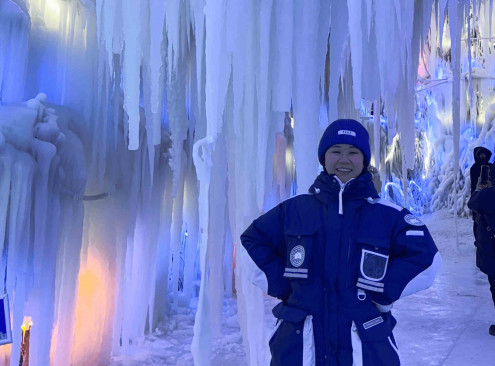© Pint of Science, 2025. All rights reserved.
From engineering bacteria to carbon capture technologies, science is leading the way in tackling climate change. Learn how directed evolution is improving photosynthetic bacteria, explore the viability of carbon capture, and discover the new materials designed to remove CO₂ from our atmosphere.
Fighting Climate Change: The Science Behind Capturing Carbon
Dr Wei Li
(Research Fellow - Engineering Central Department - University of Nottingham)
Reducing emissions alone won’t be enough – we also need to remove CO₂ from the atmosphere. Carbon capture technologies, including post-combustion capture and direct air capture (DAC), provide solutions but face challenges in cost and efficiency. My research focuses on developing advanced silica-based adsorbents to make CO₂ removal more scalable and affordable. Join me to explore the science behind capturing carbon and how it supports a net-zero future.

Directed evolution of blue-green algae
Dr Alex Martin
(Research Associate at the University of Nottingham)
Directed Evolution, also known as, “Adaptive Laboratory Evolution” or “ALE” – is an engineering strategy which exploits the selective pressure of evolutionary fitness dynamics of an environment. The same processes which change the characteristics of a population naturally, over time, are here used to rapidly select for more desirable strains of bacteria. Here we present work to engineer improved growth and biomass formation of photosynthetic bacteria. Including the challenges, limitations, and unexpected consequences we found while doing so!

Carbon capture - is it viable?
Professor Edward Lester
(Lady Trent Professor of Chemical and Environmental Engineering at the University of Nottingham)
In the era of "drill baby drill," shifting global priorities highlight the urgent need for action against climate change. Global warming threatens communities, businesses, and nature, but low-energy CO2 capture technologies – from 0.05% in air (direct air capture) to 40% in industrial flue gases – can help. Novel, but untested methods may offer low-cost solutions for achieving NetZero or NetNegative emissions. This talk delves into these innovations, discussing sustainable solutions amidst an evolving energy landscape.

Map data © OpenStreetMap contributors.
